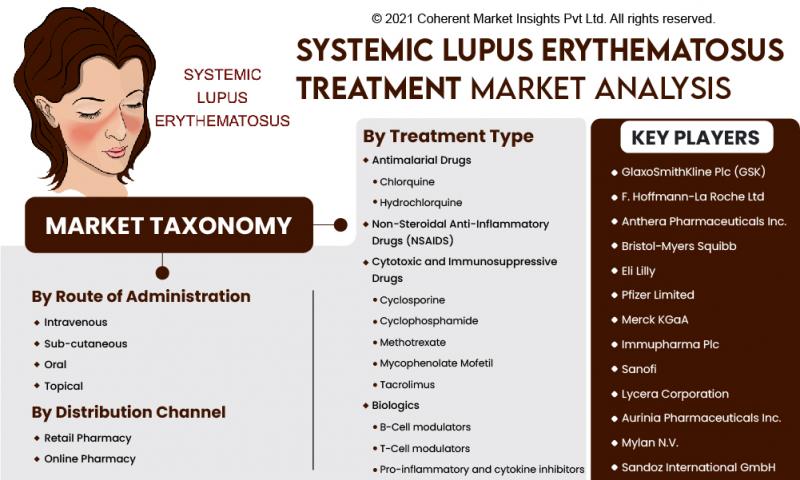Systemic Lupus Erythematosus (SLE) is a chronic autoimmune disease that can affect multiple organ systems in the body. It is characterized by a wide range of symptoms, including joint pain, skin rashes, fatigue, and in severe cases, damage to vital organs such as the kidneys and heart. Over the years, significant progress has been made in the development of treatments for SLE, and the systemic lupus erythematosus treatment market has seen remarkable advancements.
Advancements in Treatment Modalities:
- Biologic Therapies: Biologic therapies have gained prominence in SLE treatment. Monoclonal antibodies targeting specific components of the immune system, such as B cells and cytokines, have shown promising results in clinical trials. These therapies help in reducing inflammation and preventing immune system attacks on healthy tissues.
- Precision Medicine: Advances in genomics have paved the way for personalized treatment approaches. By understanding the genetic basis of SLE, healthcare providers can tailor treatment plans to individual patients, increasing the efficacy of therapy while minimizing side effects.
- Immunomodulatory Drugs: Immunosuppressant drugs like mycophenolate mofetil and cyclophosphamide remain essential in managing SLE. Their use in combination with other treatments helps control the overactive immune response responsible for SLE symptoms.
- New Anti-Inflammatory Agents: Several new anti-inflammatory drugs have emerged, offering hope for better symptom control and reduced side effects compared to traditional treatments like corticosteroids. Janus kinase (JAK) inhibitors, for example, have shown potential in clinical trials.
- Targeting Complement Pathway: The complement system plays a role in SLE pathogenesis. Recent research has focused on developing drugs that specifically target components of the complement pathway to reduce disease activity.
- Improved Monitoring: Advances in diagnostic techniques and biomarkers enable more accurate disease monitoring. Regular assessments help healthcare providers adjust treatment plans according to the patient's disease activity, preventing flares and complications.
Challenges in SLE Treatment:
Despite these advancements, challenges persist in SLE treatment. The disease's heterogeneity makes it difficult to develop a one-size-fits-all solution. Additionally, some patients may not respond adequately to available therapies, highlighting the need for ongoing research and development.
Furthermore, access to these advanced treatments can be limited in certain regions or due to cost constraints. Addressing these disparities and making innovative treatments more widely available is a critical goal in the SLE treatment landscape.
Conclusion:
The systemic lupus erythematosus treatment market has witnessed significant progress in recent years, offering new hope to patients living with this complex autoimmune disease. With ongoing research, the development of more targeted therapies, and a personalized approach to treatment, the future holds promise for improved outcomes and a better quality of life for individuals affected by SLE. However, addressing challenges related to access and affordability remains essential to ensure that these advancements benefit all those in need.
Read More….
